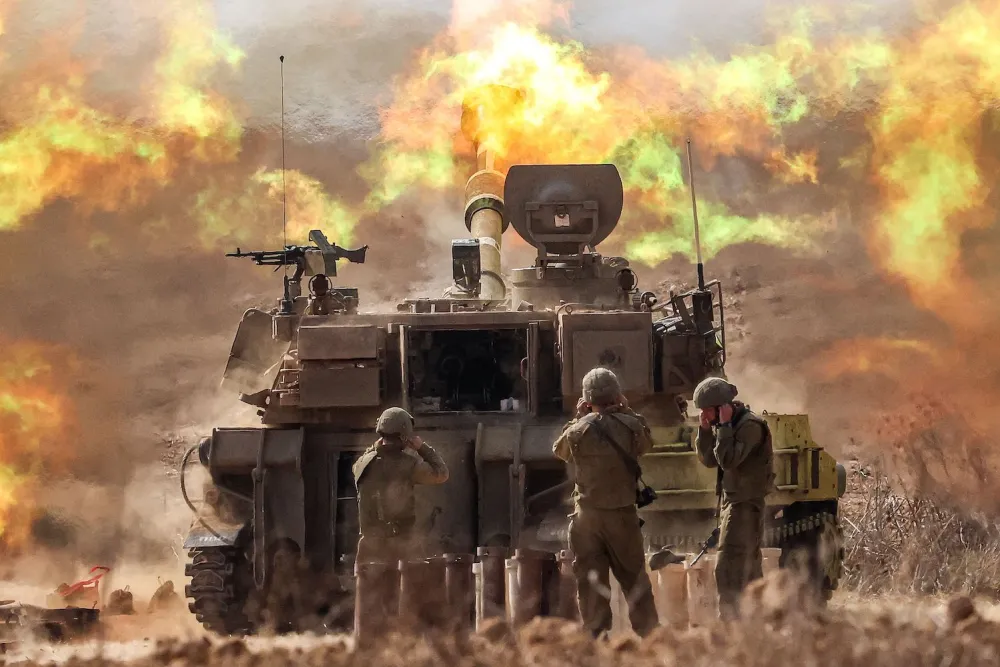*Stakeholders engage in meaningful discourse on fostering peace
*Hamas must be eliminated for peace to reign–Israel
*War crimes must be investigated–Palestine
Maureen Okpe
Amid the ongoing conflict between Hamas and the Israeli Defence Forces (IDF) in Gaza, Israel and Palestine have both expressed their commitment to peaceful coexistence. The commitment comes as thousands of casualties are recorded on both sides of the divide in the continuing war.
This was the outcome the 4th webinar edition of the Geopolitics Series on Thursday, which focused on the ‘Israel-Hamas War and the Way Forward.’ The event, organised by the Media Centre for Development (MCD) in Abuja, Nigeria, in collaboration with the West Africa Democracy Radio (WADR) in Dakar, Senegal, brought together stakeholders, Ambassadors of Israel and Palestine, and prominent voices across Africa. This collaborative effort seeks to address the critical pre-conditions set by each side, acknowledging their impact on survival.
Senator Iroegbu, the Convener of Geopolitics Series, opened the dialogue with a strong emphasis on shedding light on the pressing issue, exploring pathways to peaceful coexistence and development. Iroegbu stressed that the dialogue, conducted under the theme ‘Bridging Divides for Sustainable Peace in the Middle East and Beyond,’ aimed to promote understanding, address humanitarian considerations, comprehend global implications, and unlock the potential for African involvement.
“The 4th Edition of Geopolitics Series focuses on the Israel-Hamas conflict, transcending boundaries for global resonance. In partnership with West African Democracy Radio, we strive for peace, uniting voices, including the Palestinian and Israeli Ambassadors. The theme highlights our commitment to understanding, coexistence, and addressing humanitarian concerns with global implications. In these crucial moments, we aim to illuminate the conflict’s origins, challenges, and potential solutions,” he said.
Ambassador Michael Freeman, the Israeli Ambassador to Nigeria and the Permanent Representative of Israel to ECOWAS, expressed a commitment to peaceful coexistence. He highlighted the inhumane treatment of Israelis, lamenting the murders, killings of families, and the horrific acts of rape against women by Hamas. Freeman expressed concern over Hamas’s refusal to release hostages taken during the conflict, detailing the scale of attacks and the impact on peace talks.
He said: “We are witnessing a heartbreaking reality where children are ruthlessly killed in the presence of their parents, and parents are brutally murdered before their own children. This level of brutality surpasses even the atrocities committed by ISIS. Hamas, in a disturbing act of pride, televised this horrific attack, openly declaring their intent to repeat it.
“For Israel, our priority is ensuring that Hamas does not perpetrate such atrocities again. Ceasing fire is a possibility, but the release of kidnapped victims is non-negotiable. If Hamas genuinely desires an end to the conflict, they must commit to a long-term cessation, not a temporary pause for regrouping and subsequent attacks.”
“Hamas’s current agenda aims to inflate casualty numbers for manipulation against Israel. They possess hidden weapon facilities, and even terrorists surrendering from hospitals reveal their insidious tactics. Their call for a ceasefire is not rooted in genuine intent but rather in strategic words lacking sincerity,” Freeman stated.
Addressing the path to peace, Freeman outlined key considerations, including condemning the events of October 7th, ending the education of children to kill Jews, and acknowledging the Jewish people. He underscored the need for Palestinian leaders to stand up against Hamas’s actions, release hostages, and embrace compromise for peace.
Responding to accusations of civilian casualties, Freeman acknowledged the unfortunate reality of war but highlighted Israeli efforts to create safe zones and minimise casualties.
In response, the Palestinian Ambassador to Nigeria, Abdullah AbuShawesh, affirmed the Palestinian commitment to peace. He stressed that Palestinians do not harbour hatred for Jews but rather concerned about prevailing thoughts in Israeli leadership. Shawesh delved into historical events, tracing tensions back to 1917, and denied allegations of rape, asserting a commitment to truth and dialogue.
He said: “The Israeli settlers are responsible for the horrifying acts of burning and burying Palestinians. The claim of widespread rape is baseless and untrue, contrary to the facts.
“We stand resilient against attempts to eradicate us from our land, a struggle dating back to 1917, but we will not succumb. Our acknowledgment of the Israeli people’s right to live is not synonymous with teaching hatred towards Jews; such allegations are unfounded.”
“It is crucial to recognise that Israeli supremacy is deeply embedded in their leadership, as evidenced by historical remarks. Dispelling misinformation is paramount for fostering understanding and seeking a just resolution to the longstanding conflict.”
In seeking solutions, Ambassador Shawesh proposed an inquiry commission, independently investigating claims from both sides. He urged involvement from the African Union and the International Criminal Court (ICC) to address what he termed war crimes committed by Israel.
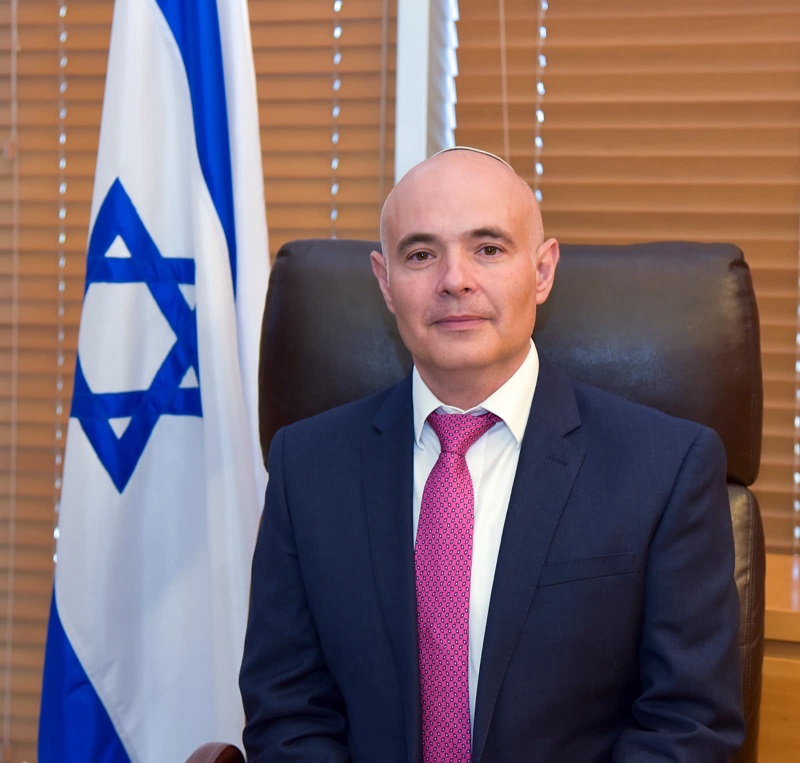
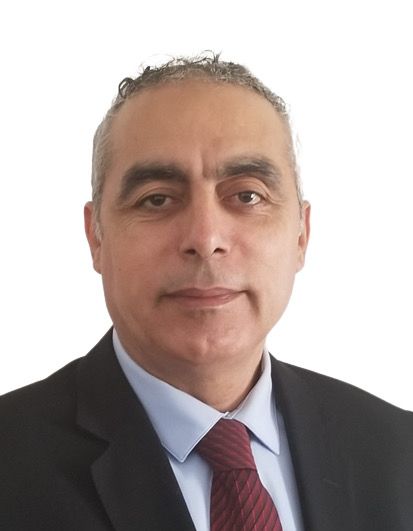
L-R: H.E Amb. Michael Freeman, Ambassador of Israel to Nigeria and Permanent Representative of Israel to ECOWAS; and H.E Amb. Abdallah M. Abu Shawesh, Ambassador of the State of Palestine to the Federal Republic of Nigeria
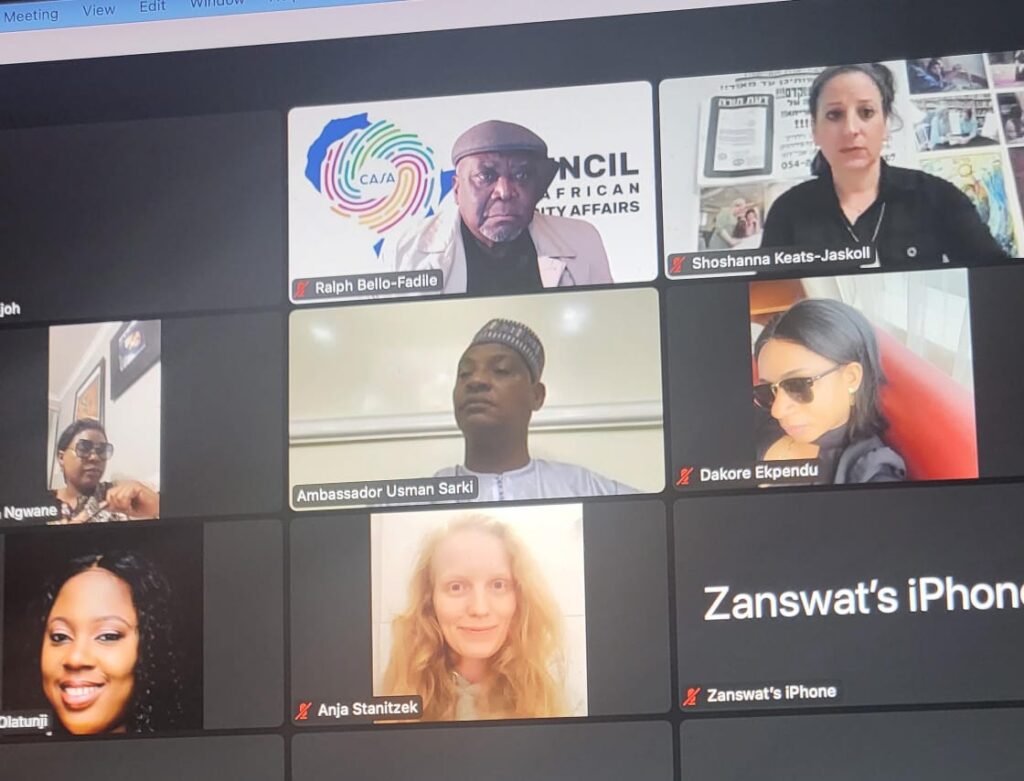
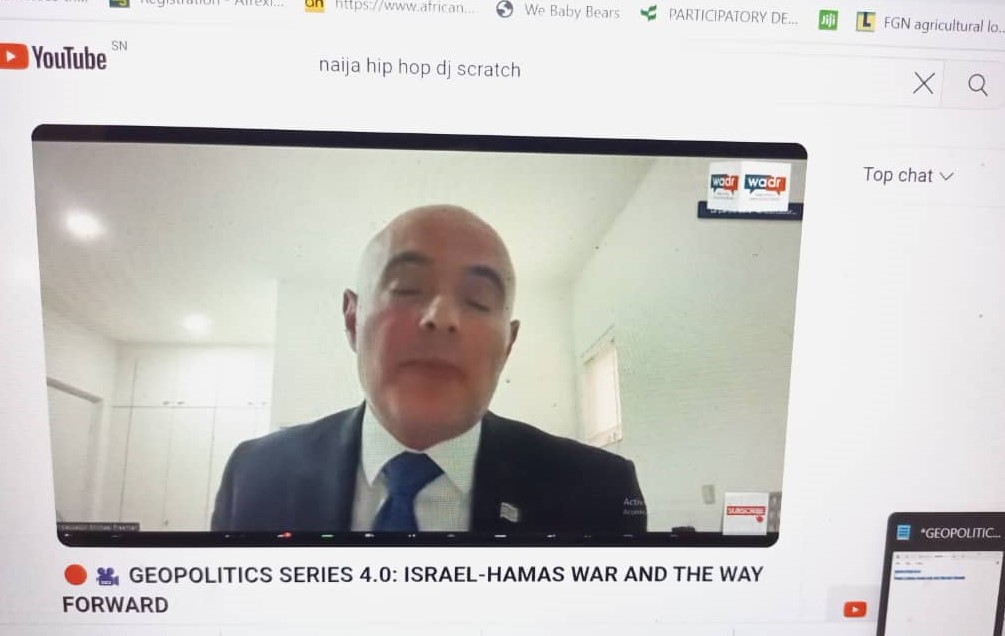
Ms. Shoshanna Keats Jaskoll, an American-Israeli activist, American-Israeli activist Shoshanna Keats Jaskoll, expressed deep concern for the aftermath of the war, particularly its impact on women and girls. A tearful Jaskoll described the impact in Israel following the attack, disclosing that people are volunteering daily for funerals as parents bury their children.
She emphasised that Hamas is not a solution for peace; it must go for peace to prevail. She highlighted the devastating impact on women and girls, revealing evidence of sexual assault on young girls after the attack, while calling for women to be part of decision-making processes, emphasising the need for peace for the sake of future generations.
“It is imperative for women to be active participants in decision-making committees, bringing forth their creative ideas. Our pursuit of peace is fundamentally for the well-being of our children. Let us invest our time in securing a future for our children through concerted efforts. Recognize that none of us is going anywhere unless we collectively strive for a harmonious and prosperous future, “she said.
Speaking on ‘Nigerian/African diplomacy and perspective in resolving the conflict’, former Deputy Permanent Representative of Nigeria to the United Nations, Amb. Usman Sarki, insisted on the two-state solution. Sarki noted that the positions of both Nigeria and Africa is that Palestinians deserves the rights to statehood and called for a “reinvigorated and enhanced roles of the United Nations” as well as the full implementation of the UN Resolution in 1947.
“Nigeria and Africa should call for Palestine to become a full-fledged member of the United Nations…recognition of the rights of Palestine to exist as country within the 1967 border”, he added.
In her welcome address, the Station Manager of WADR, Ms. Agnes John-Thomasi, stressed the profound loss experienced by both sides and advocated for unity through dialogue, recognizing it as the path to true peace.
“The road to lasting peace may be challenging, but it is not insurmountable. Together, let us construct bridges for peaceful coexistence, for the world truly needs peace,” John-Thomasi said.
Other speakers include Mr. Fidel Amakye Owusu, Security and Geopolitical Advisor, Riley Risk Inc, Ghana who gave an ‘Overview: What has geopolitics to do with this conflict – from Africa to the wider world’; and Dr. Samuel Ayegba, Department of Defence and Security Studies, Nigerian Defence Academy, Kaduna, who ‘Explored the role…perspectives of the academic institutions.
The webinar concluded with a shared understanding that the road to lasting peace may be challenging but is not insurmountable. The commitment expressed by Israel and Palestine, coupled with the engagement of stakeholders, marks a significant step toward fostering understanding and seeking solutions for sustainable peace.

